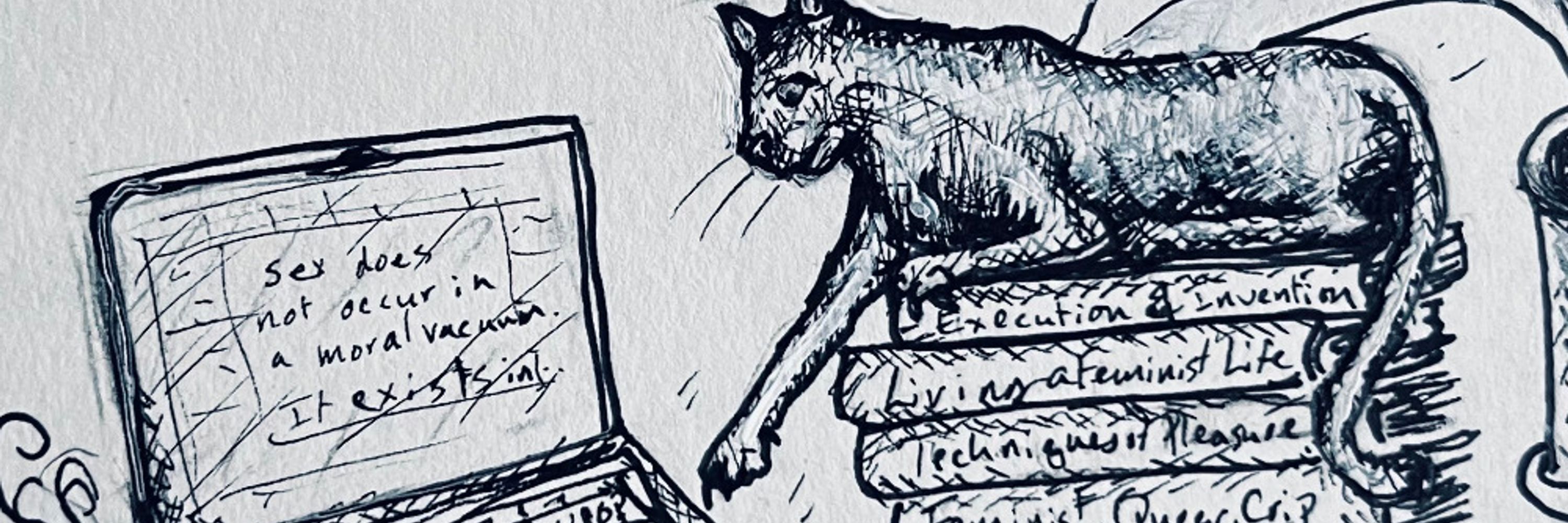
Current project: The Neurodivergent Talmud
Book: When We Collide: Sex, Social Risk, and Jewish Ethics (IUP 2023)
RJELevi.com

As we face another Trump administration, it's increasingly important to make a forceful case for the moral worth of sexual divergence, and that's what I do in "When We Collide: Sex, Social Risk, and Jewish Ethics:"
In writing about transgender people every day, I hold in my heart the people who are now our ancestors, and I try to bring their light forward.
These are the people I'm remembering today.

In writing about transgender people every day, I hold in my heart the people who are now our ancestors, and I try to bring their light forward.
These are the people I'm remembering today.
Problematic greengage gap.
Problematic macrophage gap.
Problematic rage gap.
Problematic greengage gap.
*the range of options is truly bananas
*chicken and pomegranate flavored food? For cats?
*the number of raw options is distressing; this is unsafe and should be regulated
1/
*the range of options is truly bananas
*chicken and pomegranate flavored food? For cats?
*the number of raw options is distressing; this is unsafe and should be regulated
1/
🧵
www.classy.org/fundraiser/6...
www.classy.org/fundraiser/6...
For example, I took a basketball class and graduated w/all-time 8th man Jud Buechler (look it up), and may have followed Stephanie Seymour (not sure if she still WENT to school after I moved there).
For example, I took a basketball class and graduated w/all-time 8th man Jud Buechler (look it up), and may have followed Stephanie Seymour (not sure if she still WENT to school after I moved there).


DOUGLAS: Icarus?
MARTIN: Yes, that’s right.
DOUGLAS: You do know what happened to Icarus?
MARTIN: ... Of course I do!
DOUGLAS: So you’ve deliberately named your company after the first bad pilot in history?
(Cabin Pressure, "Ottery St. Mary")

DOUGLAS: Icarus?
MARTIN: Yes, that’s right.
DOUGLAS: You do know what happened to Icarus?
MARTIN: ... Of course I do!
DOUGLAS: So you’ve deliberately named your company after the first bad pilot in history?
(Cabin Pressure, "Ottery St. Mary")
12% are nonbinary (58% women, 30% men)
16% are Jews by choice
12% ID as a race other than white.


www.classy.org/fundraiser/6...

www.classy.org/fundraiser/6...


